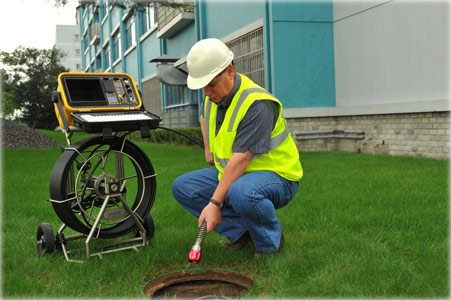 Video cameras are one of the most valuable tools in the plumbing industry. Specially made waterproof cameras can inspect sewer lines and other pipes buried underground, in cement and even in your home’s foundation.
Video cameras are one of the most valuable tools in the plumbing industry. Specially made waterproof cameras can inspect sewer lines and other pipes buried underground, in cement and even in your home’s foundation.
Video Inspection
A sewer video inspection typically done by a plumbing specialist involves running a video line through the pipes. The video may extend down the pipes that lead from the faucets and bathtubs of your house to the sewer line, or down the larger pipes that lead from the house to the sewer line on the streets. A camera allows you to see the lines close-up and in real time.
A video inspection can identify the obstructions and damages that disrupt the flow of water and waste. These interruptions usually cause water backups and slow drainage. A video inspection can also verify if smooth flow is restored after repair. Some problems that a video inspection can reveal include the following:
- Cracks and breaks in the pipe
- Corrosion and deterioration of a pipe section that can lead to collapse or restrict the flow of water and waste.
- Joint leaks
- Tree roots invading the sewer lines which can prevent normal cleaning and cause damage
- Misaligned sewer piping caused by frozen ground or shifting soil
- Blockage caused by foreign object or accumulation of grease
Video inspection has also been used to locate lost valuable items such as jewelry or animals that were trapped in pipes.
You can do a video inspection yourself but the process is most effective if it is done by a professional with years of experience in the field. Video scopes and locator units used by plumbers also have powerful light, show images that stay upright, are high resolution and have recording capabilities. Their cameras also have transmitters at the end that help locate block points.
Jetting Drain Lines
Once a blockage such as a root mass or a clogged drain line is identified, high pressure water jetting can get rid of them. The process is an economical, efficient and environmentally safe way to clean drain lines and sewer pipes. Regular water jetting removes mineral deposits, sludge, grease buildup and debris that accumulate in the lines.
